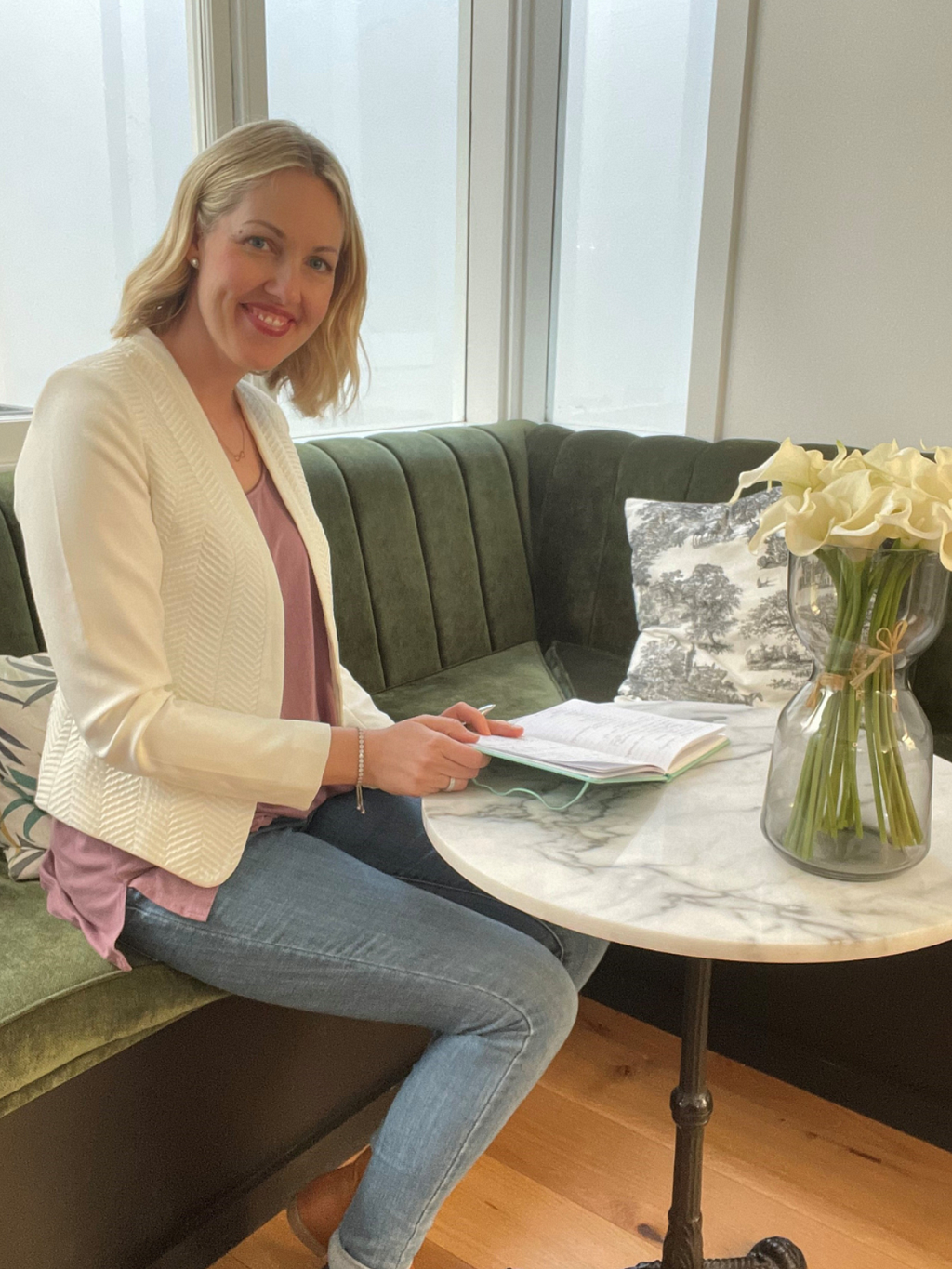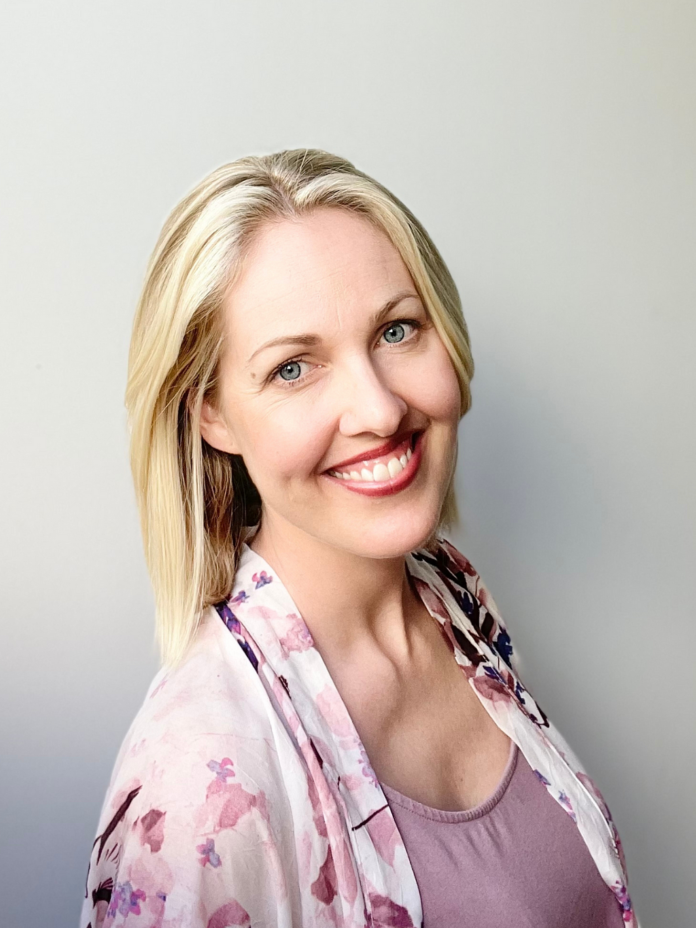An Interview With Lucinda Koza
Know that it’s not your fault. I felt shameful and like a failure when I was diagnosed with postpartum depression. But one of the best things my doctor told me was “Depression is like Type 1 Diabetes. It can happen to you at anytime and isn’t fussy who it happens to”. Hearing this helped me understand that it was ok and that I was going to get through it.
Postpartum depression is a significant challenge that many new mothers face. The journey to recovery is unique for each individual, involving emotional resilience, self-care strategies, and often the support of healthcare professionals. Addressing postpartum depression is crucial for the well-being of both the mother and her family. Sharing these personal journeys can provide hope, support, and practical advice to others facing similar challenges. As a part of this series, I had the pleasure of interviewing Belinda Whelan.
Belinda is a certified holistic health coach based in Moana, South Australia who supports women with Celiac Disease. She is the mother of 3 children who also lives with Celiac Disease herself. Through her coaching and online presence, Belinda raises awareness for her Autoimmune Disease and helps others thrive instead of struggle.
Thank you so much for joining us in this interview series! Before we dive in, our readers would love to “get to know you” better. Can you tell us a bit about you and your backstory?
I’ve always been an incredibly positive person who never understood depression. I naively previously believed it was something that people could just “snap” out of. I found motherhood relatively easy and enjoyable with my first 2 babies.
Can you share a little about your childbirth experience with us?
I’ve given birth to 3 beautiful babies, all of which I had wonderful births with. My support team with each birth was amazing and I had my husband by my side catering to my every need. I always joke that I’d take childbirth over pregnancy any day as I could not say a bad thing about giving birth.
How did you know you had postpartum depression? How quickly did these symptoms seem to inhabit you after giving birth?
Postpartum depression seemed to sneak up on me gradually after my 3rd baby. Our youngest had a cow milk protein intolerance that we didn’t discover until she was around 3 months old. Up until that point she didn’t sleep and she screamed almost non-stop. It was exhausting to say the least and took its toll on our entire family as no one was getting a decent sleep. The flow on effect meant that my self-care went out the window. I wasn’t eating well, I was never getting sleep and my body was in fight or flight mode constantly.
It took around a year for my mother to point out to me that she believed I had depression. Reflecting on that time in my life, I can see the signs now and how well I managed to hide it from others that I wasn’t coping, including my husband. With the support of my husband and mother, I went to my doctor to get a diagnosis and find out what my options were for coping and recovery.
What was the most insidious way postpartum depression had an effect on your body, your new child, your relationship, your family, your work, your brain, your sense of identity? What scared you the most?
I suffered from delusions and was constantly on edge that people were spying on me. It was such a stressful and creepy feeling that sent my anxiety through the roof and kept me from sleeping at night. I’d be so exhausted and expect to fall asleep as soon as my head hit the pillow at night. Instead, I’d lay awake half the night stressing about situations that would likely never happen. Sleep deprivation is a form of torture and because I wasn’t sleeping, I was cranky every day towards my family. I isolated myself from friends and avoided social situations as much as possible. As this was during Covid times, my normal bubbly social self probably wasn’t missed as it was common for people to be staying home instead of socializing.
The hardest and scariest part during that time was the feeling of not wanting to be here anymore. I just felt so lost and that my personality didn’t exist anymore.
What has been the single most important tool in your arsenal as you have moved through and out of postpartum depression? Why?
Finding myself through my passions and prioritizing my self-care has been pivotal in my recovery. As I felt so lost during that time, I needed something just for me. Joining the gym and relaunching my business were game changers is helping me get back on track.
In a perfect world, what do you think women need, structurally, to ensure this transition into motherhood is a healthy one?
If you’d asked me this question prior to having postpartum depression, I would have answered support. But I had all the support in the world I could’ve possibly needed.

Can you please share “5 Things You Need to Heal After Postpartum Depression”?
1 . Know that it’s not your fault. I felt shameful and like a failure when I was diagnosed with postpartum depression. But one of the best things my doctor told me was “Depression is like Type 1 Diabetes. It can happen to you at anytime and isn’t fussy who it happens to”. Hearing this helped me understand that it was ok and that I was going to get through it.
2 . Focus on your inner health. Eat nutritious food and support your gut health. A balanced gut microbiome can improve the production of serotonin (the happy hormone) and can help in managing depression. My diet went downhill after having my youngest. I noticed a dramatic shift to feeling better once I got my diet back on track to eating more healthy and nutritious foods.
3 . Ask for help. Having a new baby can be tough when you’re doing almost everything yourself. I’d had numerous medical people tell me that I’d be fine as I’d already raised 2 children. Having a 3rd baby with 2 other children to look after was a lot of extra work. Between more washing, having to drag a baby in and out the car to drop my eldest off to her activities and feeding a baby whilst entertaining a toddler, there wasn’t much time left each day. If I had my time again, I would ask for help with cleaning, caring for my toddler and I would’ve meal prepped for the days my husband worked away.
4 . Move your body. After my first 2 babies, I was back at the gym, walking regularly and focusing on my physical health. But after my 3rd baby, I didn’t go for walks as our pram wasn’t suitable for 2 children (I later bought a double stroller) and wasn’t doing any exercise as I was so mentally exhausted. As soon as I joined a gym and started walking along the beach front, I started to feel better. Physical activity releases chemicals that reduce stress and can ward off depression. I continue to prioritize working out on a regular basis.
5 . Get restorative sleep. I’m the first to admit this is easier said than done but this was the main key to my recovery. With the help of my doctor, I was able to get some solid sleep over a few days while a loved one took care of my children. This helped my body get back into the habit of sleeping well again and my health continued to improve with regular sleep.
In what ways did society support you as a new mother with postpartum depression?
I had follow up visits in my home from my midwife as well as separate visits from a nurse. These visits were in the early weeks after birth.
In what ways did you feel failed or overlooked?
In Australia when you have a baby, the hospital will connect you with a group of new Mums within your area through what we call a “Mums Group”. As I’d moved from interstate, I asked to join a group but was told no as that is only available to first time Mums. It was thoroughly disappointing not to be able to have the opportunity to connect regularly with other new Mums. Perhaps if I’d had that ongoing opportunity to talk with other women with newborns, someone else would’ve pointed out sooner that I was suffering with postpartum depression.
How did you navigate the balance between taking care of your newborn and prioritizing your own healing needs during the postpartum period?
Initially my only priority was to feed my children. I started reaching for food that I normally would never have eaten. Easy food that I could grab and eat one handed while I dealt with my youngest was often the only way to get food into me. Thankfully my husband is a wonderful cook and would make me plenty of meals, I just struggled with the snacking when he was away with work. Once I was diagnosed with postpartum depression it became clearer that my self-care was more important than ever.
Wonderful. We are nearly done. Is there a person in the world, or in the US, with whom you would like to have a private breakfast or lunch, and why? He or she might just see this, especially if we tag them. 🙂?
I’d love to chat over a meal with American Fitness expert Jillian Michaels. She has been talking about some very important, yet hard to talk about topics on her Podcast which I highly respect her courage for doing so.
If you could start a movement that would bring the most amount of good to the most amount of people, what would that be? You never know what your idea can trigger. 🙂
I’d love to see the screening for Celiac Disease become a routine test anytime someone has blood panels done. Too many people suffer in pain and with symptoms they can’t explain due to Celiac Disease, and this would help people globally get answers to their health issues sooner. Depression is also a problem that people with undiagnosed Celiac Disease suffer with.
How can our readers follow your work online?
Website https://www.belindawhelan.com/
Instagram @thehealthyceliac
Podcast The Healthy Celiac Podcast
Thank you so much for joining us. This was very inspirational.
About the Interviewer: After becoming her father’s sole caregiver at a young age, Lucinda Koza founded I-Ally, a community-based app that provides access to services and support for millennial family caregivers. Mrs. Koza has had essays published in Thought Catalog, Medium Women, Caregiving.com and Hackernoon.com. She was featured in ‘Founded by Women: Inspiration and Advice from over 100 Female Founders’ by Sydney Horton. A filmmaker, Mrs. Koza premiered short film ‘Laura Point’ at the 2015 Cannes Film Festival and recently co-directed ‘Caregivers: A Story About Them’ with Egyptian filmmaker Roshdy Ahmed. Her most notable achievement, however, has been becoming a mother to fraternal twins in 2023. Reach out to Lucinda via social media or directly by email: [email protected].
Belinda Whelan Of The Healthy Celiac: What I Did to Heal After Postpartum Depression was originally published in Authority Magazine on Medium, where people are continuing the conversation by highlighting and responding to this story.


